
Wait, When Does History Begin?
You know that feeling when you finally toss out the last box from a big move… and suddenly your home is no longer a construction zone, but, hey, an actual home? That’s kind of what it’s like getting to call colon cancer part of your “history.” But—here’s the twist—when does it actually count as history in the medical world? Not everyone knows (including, honestly, lots of us after treatment), but understanding this little line in your health chart can change a lot.
If you’re reading this, maybe you or someone you love has stared down colon cancer. Or maybe this is all new, and you’re prepping… just in case. Either way, let’s take a deep breath and make sense of that code: history of colon cancer icd 10. Not just numbers and letters. A roadmap for care, a nod at your resilience, and, sometimes, a tricky bit of paperwork.
From Active Battle to “History” Status
So, When Can the Doctor Say “History of Colon Cancer”?
If you ever thought medical terms sound a lot like legal jargon, you’re so not alone. Technically, the shift from “you have cancer” to “you had cancer” in your chart happens after a very specific moment: treatment is complete, and no one can find a single bad cell left. Not even lurking. No chemo or radiation aimed at it. There’s an official term for this: No Evidence of Disease (NED). It’s basically the “all clear” for your insides.
And when your doctor and their billing team meet for the (endless) forms, they use a special number—ICD-10 code Z85.038. This code says, simply, “Personal history of malignant neoplasm of large intestine.” That’s a mouthful, but it means, “Nope, not active. This is in the past.” It replaced the old ICD-9 code (V10.05) way back in 2013, so the medical world could all get on the same page and track care better according to this ICD-10 update summary.
Mini Story: When My Chart Flipped
I still remember when my friend Rachel called, excited and a little confused. “So am I finished seeing the oncologist?” she asked, clutching a printout with “Z85.038” circled at the bottom. Her nurse explained, gently, that this was the official stamp that her colon cancer was now part of her medical history. Rachel said it felt a bit like getting a gold star… except nobody really wants this one, you know?
Active Cancer vs. History: Why Does This Matter?
What if you’re still going through treatment? Or you just finished chemo and you’re in what doctors call “remission” (which is like a snooze button, not a full stop)? In those situations, “active” codes like C18.x (for a currently present colon cancer) still apply. Only when treatment’s done and there’s genuinely nothing left do we switch over to that precious “history” status—Z85.038. This matters because insurance payments, screening schedules, and even future care plans all depend on getting it right based on ICD-10 documentation tips.
| What’s On Your File? | What It Means | What Care Looks Like |
|---|---|---|
| Active cancer: C18.x | You’re still in treatment, or it hasn’t been fully removed. | Surgeries, chemo, frequent scans, maybe intense side effects |
| History of cancer: Z85.038 | No evidence left, treatment finished | Regular check-ups, “surveillance” (those follow-up exams), lifestyle tweaks for good measure |
Does Family History Change Things?
Family Health: More Than Just Old Photos
Have you ever sat at a big family dinner, and the conversation swings around to “what runs in the family”? Turns out, this is pure gold for doctors. If someone in your close family—mom, dad, siblings—has had colon cancer, your own care plan flips to “high alert.”
On your chart, family risk gets a code too: Z80.0 (“family history of malignant neoplasm of digestive organs”). This is key if you want insurance to approve earlier or more frequent screenings. If Aunt Sally had colon cancer, you might get your first colonoscopy at 45 instead of 50, for example. The ICD-10 system is all about keeping it clear and making sure your history (and your family’s history) shapes your next step—kind of like Google Maps with health. You can dig deeper into Family history of colon cancer ICD-10 if you’re curious where you stand.
An Anecdote: The “Family BBQ Wake-Up Call”
Quick story—my cousin Dave thought he was “in the clear” until someone at our family picnic casually mentioned three other relatives had early colon cancer. He took that info to his next checkup, and sure enough, doc not only flagged him for extra screenings but put a Z80.0 in his record. Suddenly it was like, “Dude, your family’s medical gossip just bought you preventive VIP status.”
How the Codes Evolved—and Why It’s a Big Deal
You’re Not Old—But the Codes Used to Be
Okay, a quick throwback: Before 2015, U.S. doctors used ICD-9, and honestly, it was a mess. Different hospitals, different codes. Now, with ICD-10, everyone (well… everyone in the medical field, at least) speaks the same language. “History of colon cancer ICD-10” uses Z85.038, and there’s even a special code (Z86.010) just for history of colonic polyps. These days, coding is like having emoji for every health detail—super clear, and, sometimes, just as surprising.
Why do these history codes matter? Because they’re not just used to bill insurance—they shape your next years of care and what your insurance will actually pay for. Mess up the code, and you might have to haggle about follow-up colonoscopies… or worse, pay more out of pocket. No thank you!
| Code | Use | Who It’s For |
|---|---|---|
| Z85.038 | Personal history of malignant neoplasm of large intestine | People done with colon cancer treatment, NED |
| Z80.0 | Family history of malignant neoplasm of digestive organs | If a close relative has cancer, your chart gets an upgrade |
| Z86.010 | Personal history of colonic polyps | If you had polyps removed (think: warning flag without cancer) |
How Do These Codes Affect Your Life?
Everyday Wellness… with a Twist
Now the million-dollar question—what changes for your daily life when “history of colon cancer icd 10” enters your chart? First: you move from super-intense cancer care to, honestly, a more normal routine… with just a few medical reminders. It’s about getting back those “boring” moments (in the best way, trust me)—and focusing on what you can control: food, movement, gut health, and mental health. But it’s also an annual update, like renewing your driver’s license but way more important.
If you have a family member with a history of colon cancer, don’t just let the info sit like a dusty box in the attic—share that with your doctor! Check out the full scoop at Family history of colon cancer ICD-10 and see how that might mean bumping up your own screenings.
| Old Habit | Healthier Twist | Why It Helps |
|---|---|---|
| Settling for fast food lunches | Making a big salad (add beans for fiber!) | Fiber’s your friend. It can help lower cancer risk. |
| Skipping annual appointments | Set a reminder—Z85.038 check-in | Missed colonoscopies = missed chances to catch a problem early |
| Ignoring family health history | Ask! Add Z80.0 to your doctor’s notes | You might get screening sooner and catch stuff early |
Still Up at Night? A Few Odds and Ends…
If you’re nervous about “history” codes—maybe worried it’ll mean your cancer comes back, or that you’ll get less attention—take heart. These codes don’t mean you’re forgotten; if anything, they make your care way more targeted. With Z85.038 and the right documentation, your “check engine” light stays active, except it’s a doctor, not a dashboard, keeping watch.
It can feel weird—almost anticlimactic—to stop full-on treatment. Maybe you feel relief. Maybe you feel anxious, scanning your body for any sign of trouble. That’s normal. I’ve watched friends bounce between “woo-hoo, I’m done!” and “wait… am I really done?” every time a new checkup comes around.
What About Colon Polyps?
Polyp Power: Not as Boring as They Sound
This one throws people sometimes—what if your problem was just polyps (those tiny, sometimes nasty, growths) but not actual cancer? Yup, you get a “history” code too. That one’s Z86.010 if you’ve had adenomatous polyps taken out. Why does it matter? Well, polyps are often the canary in the coal mine—early warning that your gut’s prone to trouble. Think of polyps as that friend who texts you about traffic jams ahead; annoying, but potentially life-saving.
Tip: Family History of Polyps Is Key
Just like cancer, if polyps pop up in the family tree, bring that up at your next appointment. The family history of colon cancer ICD-10 approach covers not just cancer but polyps too—so everyone gets the right level of screening and care.
Ready for a Wellness Tune-Up?
Little Changes, Big Return
What now? Once your history of colon cancer icd 10 code shows up, it’s time to put prevention in the spotlight. Consider adding more fiber—oats, berries, leafy greens. Stretch more, stress less. Yes, it’s the same advice that gets plastered all over health blogs, but when you have this kind of history, it’s not just “nice to do”—it’s actually critical.
If you’re in the club of folks labeled Z85.038 (trust me, you’re in good company), focus on “maintenance mode.” Keep up those checkups. And don’t ignore new symptoms, even small ones. You know your body best.
| Tune-Up Checklist | Frequency |
|---|---|
| Annual colonoscopy or as doctor recommends | Every 1-3 years after treatment |
| Share family history with your provider | At each annual visit |
| Eat 25-35g fiber per day | Daily (yes, really) |
| Talk about weird new symptoms | Don’t wait—call right away |
If you need a refresher or just want to double-check which code means what (and why it matters), history of colon cancer icd 10 walks you through the doctor-speak without the medical gobbledygook.
Wrapping Up: Living Well with Your History (and Your Code)
Here’s the truth—having a history code like Z85.038 in your file doesn’t make you fragile. It means you’ve been through something big, and now you (and your healthcare team) are just keeping an extra-close eye on things. Whether you’re celebrating that “all clear” moment, or passing on family stories that might save a loved one’s life, you’re the main character of this story.
If you take one thing from all this, let it be this: don’t leave your “history” just as a note in your file. Use it. Tell your family, talk to your doctor, and don’t let your next checkup slide. Your story matters—because you’re still writing it. Be your own best health advocate. You’ve already done the hardest part.
So, next time someone asks about your medical history, give yourself a high-five. You’re not just a code… you’re a survivor, a teacher, and maybe, an inspiration for the next person who gets handed a scary diagnosis. And if you get lost in the codes, remember—the answer (and support) is just a conversation away. Stay curious, stay proactive—and keep living that “history” to the fullest.

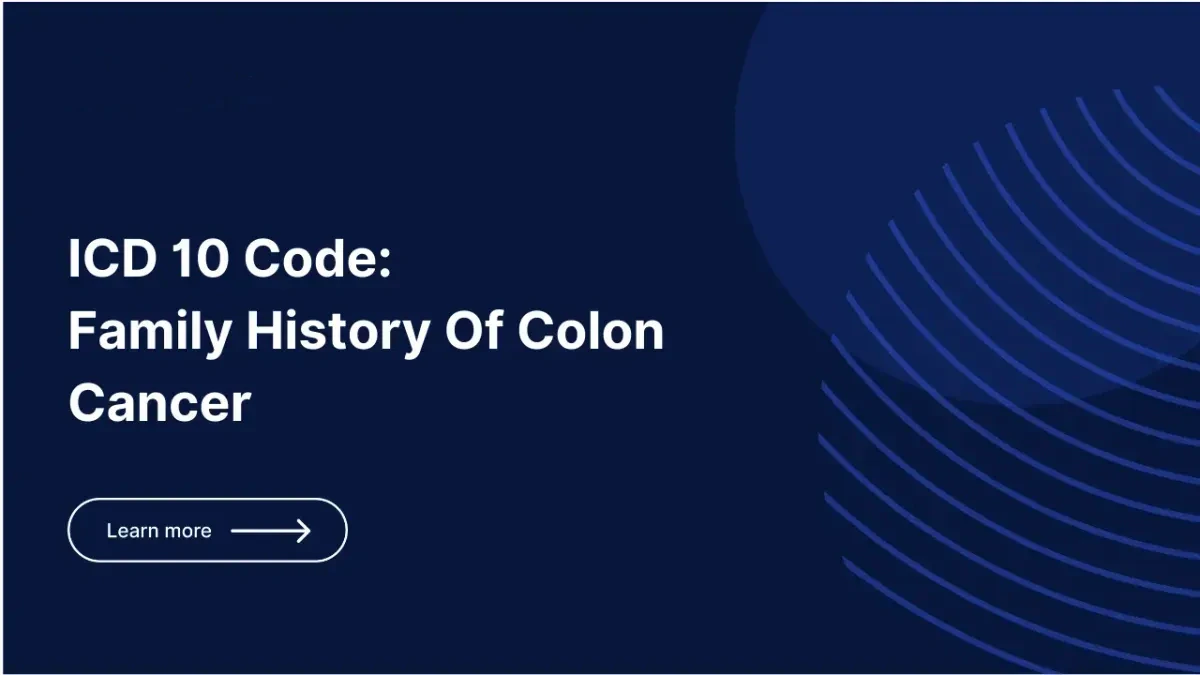
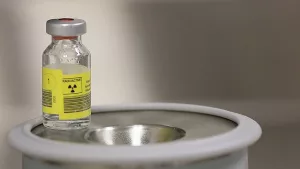

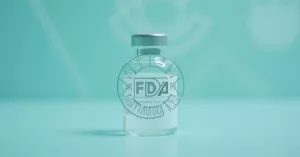

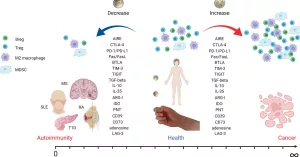








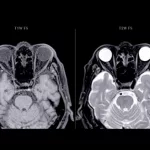


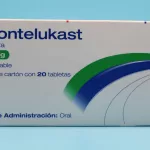


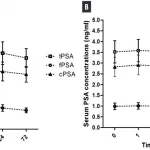

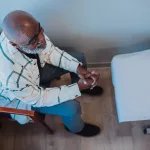
Leave a Reply
You must be logged in to post a comment.